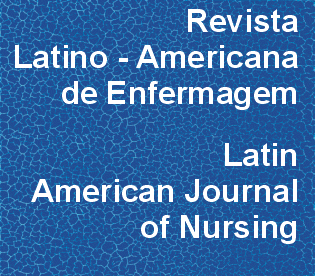Atitudes pré-hospitalares adotadas por pacientes frente aos sintomas de infarto agudo do miocárdio
DOI:
https://doi.org/10.1590/S0104-11692011000500004Palavras-chave:
Infarto do Miocárdio, Sintomas, Conhecimentos, Atitudes e Prática em SaúdeResumo
Esta série de casos teve o objetivo de avaliar as condutas adotadas pelos pacientes, durante a fase pré-hospitalar do infarto agudo do miocárdio (IAM). Avaliaram-se 115 indivíduos portadores de IAM, com supradesnivelamento do segmento ST. Foi aplicado o teste qui-quadrado e o teste exato de Fisher. Os indivíduos que não associaram os sintomas à doença cardiovascular atribuíram, mais frequentemente, às seguintes origens: gastrointestinal (38%), osteomuscular (29,7%), intoxicação alimentar e/ou medicamentosa (8,5%) e decorrentes do aparelho respiratório (6,3%). A proporção de desfechos maiores e de pacientes que chegaram à emergência após 12 horas foi mais elevada entre mulheres, indivíduos com renda mensal de até um salário mínimo, que usaram analgésicos e não associaram os sintomas à doença cardiovascular. Constatou-se que indivíduos em condições socio-conômicas desfavoráveis, que interpretaram os sintomas de forma incorreta, chegaram mais tardiamente à emergência e apresentaram piores desfechos intra-hospitalares.Downloads
Os dados de download ainda não estão disponíveis.
Downloads
Publicado
2011-10-01
Edição
Seção
Artigos Originais
Licença
Os direitos autorais são de propriedade exclusiva da revista, transferidos por meio da Declaração de Transferência de Direitos Autorais (presente no Formulário Individual de Declarações) assinada pelos autores. Para a utilização dos artigos, a RLAE adota a Licença Creative Commons, CC BY-NC Atribuição não comercial (resumo ou código completo da licença). Com essa licença é permitido acessar, baixar (download), copiar, imprimir, compartilhar, reutilizar e distribuir os artigos, desde que para uso não comercial e com a citação da fonte, conferindo os devidos créditos autorais a Revista Latino-Americana de Enfermagem. Nesses casos, nenhuma permissão é necessária por parte dos autores ou dos editores.Como Citar
Gouveia, V. de A., Victor, E. G., & Lima, S. G. de. (2011). Atitudes pré-hospitalares adotadas por pacientes frente aos sintomas de infarto agudo do miocárdio . Revista Latino-Americana De Enfermagem, 19(5), 1080-1087. https://doi.org/10.1590/S0104-11692011000500004



